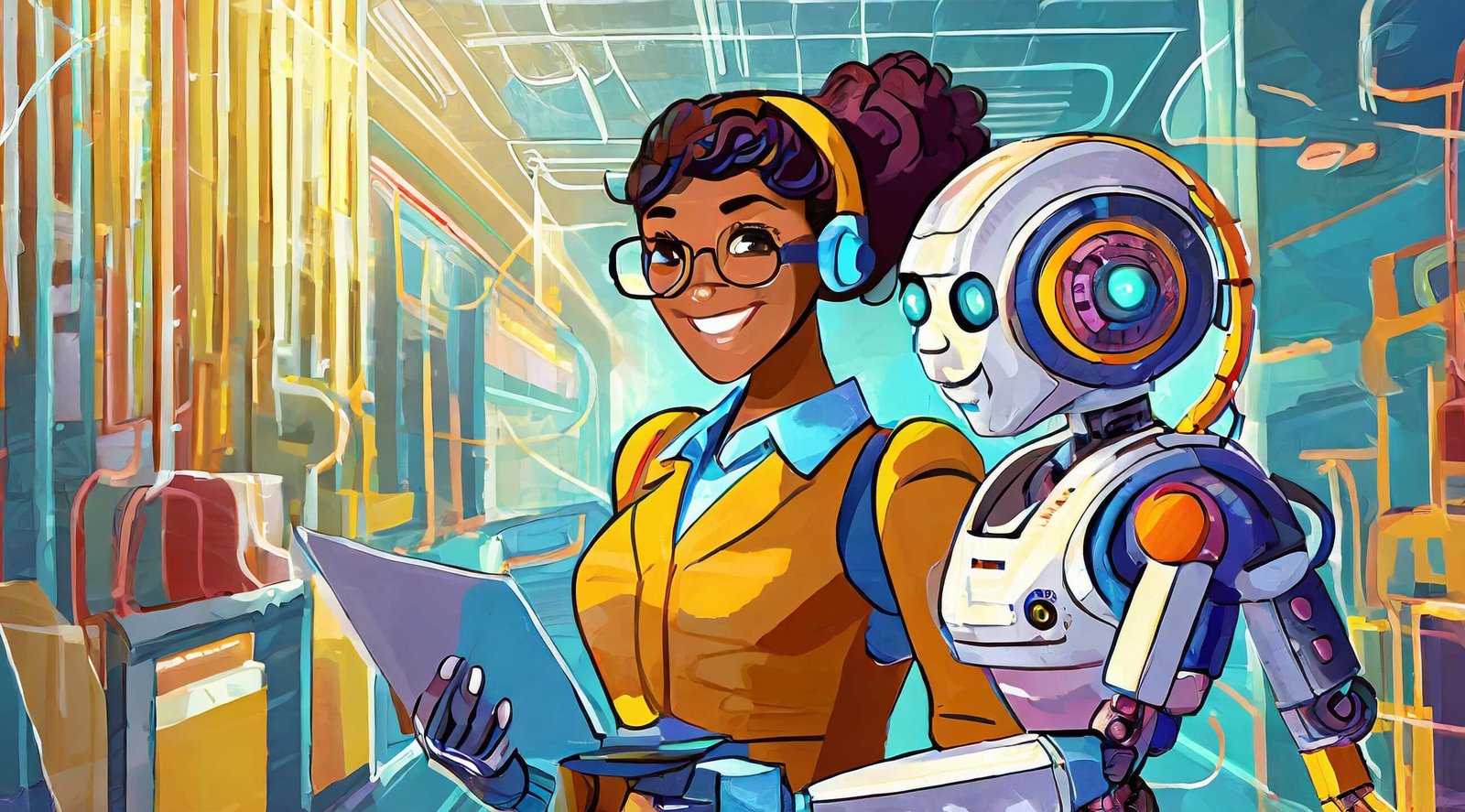Imagine a world where robots do the heavy lifting, analyze mountains of data in seconds, and even write basic news reports. This isn't science fiction, it's the reality of artificial intelligence (AI) in the 21st century. But with all this automation, a big question arises: will AI completely replace human workers?
The answer, thankfully, isn't a simple yes or no. AI is like a powerful tool, and like any tool, it depends on how we use it. While AI can automate certain tasks, it's highly unlikely it will ever fully replace the human workforce. Here's why:
The Uniqueness of Human Skills:
Think about the qualities that make you, well, you. Creativity, critical thinking, problem-solving under pressure, and the ability to build relationships are just some of the unique human skills that AI currently struggles with.
- Creativity: Imagine a world without art, music, or innovative ideas. These aspects of human life are fueled by creativity, a skill that AI, despite advancements, still lacks. While AI can analyze existing data and even create variations, it can't truly come up with something entirely new and original.
- Empathy and Emotional Intelligence: Humans excel at understanding and responding to emotions. Whether it's a doctor comforting a patient, a teacher encouraging a student, or a social worker supporting someone in need, these interactions require a level of empathy and emotional intelligence that AI simply cannot replicate.
- Adaptability and Problem-solving: Unexpected situations are a part of life, and the ability to adapt and find solutions is crucial. Humans can think on their feet, analyze a situation from different angles, and come up with creative solutions to new problems. While AI can follow pre-programmed instructions and solve problems within its defined parameters, it currently struggles with situations outside its training data.
The Human-AI Collaboration:
Instead of fearing complete replacement, we should view AI as a powerful tool that can augment human capabilities. Imagine doctors using AI to analyze patient data and identify potential risks, freeing them to focus on building relationships with patients and providing personalized care.
- Increased Efficiency and Productivity: AI can automate repetitive tasks, freeing up human workers to focus on more complex and creative endeavors. This can lead to increased efficiency and productivity across various industries.
- Enhanced Decision-Making: AI can analyze vast amounts of data and identify patterns that humans might miss, providing valuable insights for better decision-making in various fields.
The Future of Work:
The future of work will likely involve a collaboration between humans and AI. While AI automates certain tasks, humans will play a crucial role in areas that require uniquely human skills like creativity, critical thinking, and emotional intelligence.
Preparing for the Future:
To thrive in this evolving landscape, it's important to:
- Develop lifelong learning skills: As technology continues to evolve, the ability to learn and adapt new skills will be crucial.
- Focus on uniquely human skills: Nurture your creativity, communication, and critical thinking skills, as these will be highly sought-after in the future of work.
- Embrace collaboration: Learn to work effectively with AI and other humans to achieve common goals.
The future of work with AI is not about humans versus machines, but rather about humans and machines working together to create a more efficient, productive, and ultimately, more human-centered future.
